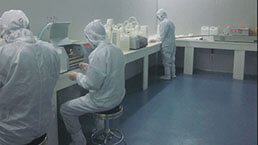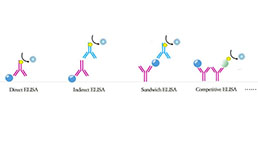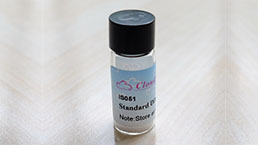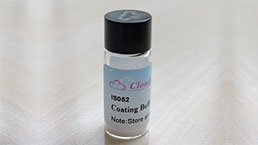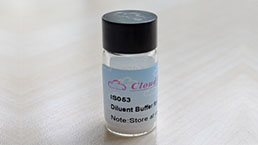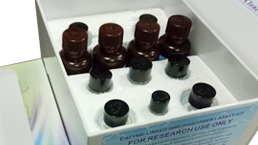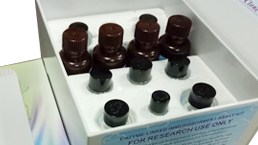Antibody Pair for Lectin Galactoside Binding, Soluble 3 Binding Protein (LGALS3BP)
MAC-2-BP; LGALS3-BP; Galectin-3-Binding Protein; L3 Antigen; Mac-2-Binding Protein; Tumor-associated antigen 90K; Serum Protein 90K; Basement membrane autoantigen p105
- Product No.PSB766Hu01
- Organism SpeciesHomo sapiens (Human) Same name, Different species.
-
Reagent Contents
Recombinant Lectin Galactoside Binding, Soluble 3 Binding Protein (LGALS3BP) 50ug Standard Monoclonal Antibody to Lectin Galactoside Binding, Soluble 3 Binding Protein (LGALS3BP) 500ug Capture Ab Biotin-Linked Monoclonal Antibody to Lectin Galactoside Binding, Soluble 3 Binding Protein (LGALS3BP) 200ug Detection Ab - ApplicationsELISA; CLIA; ELISPOT; Luminex; Immunochromatography and other Immunoassays.
- Downloadn/a
- UOM 96T*596T*10 96T*20 96T*50 96T*100
- FOB
US$ 1078
US$ 1796
US$ 3233
US$ 6286
US$ 10776
For more details, please contact local distributors!
MATCHING TESTS
USAGE
The concentration of protein/peptide and antibodies used in different immunoassays need to be determined by users according to their experiments.
STORAGE
Avoid repeated freeze/thaw cycles. Store at 2-8°C for one month. Aliquot and store at -80°C for 12 months.
STABILITY
The thermal stability is described by the loss rate. The loss rate was determined by accelerated thermal degradation test, that is, incubate the protein at 37°C for 48h, and no obvious degradation and precipitation were observed. The loss rate is less than 5% within the expiration date under appropriate storage condition.
GIVEAWAYS
INCREMENT SERVICES
| Magazine | Citations |
| Andrology | Comparative proteomic analysis coupled with conventional protein assay as a strategy to identify predictors of successful testicular sperm extraction in patients with non-obstructive azoospermia PubMed: 23427166 |
| Liver International | Identification of candidate biomarkers for hepatocellular carcinoma in plasma of HCV-infected cirrhotic patients by 4-D DIGE Pubmed: 23944848 |
| Acta Anaesthesiologica Scandinavica | Early prognostic factors in septic shock cancer patients: a prospective study with a proteomic approach Pubmed:29315472 |






